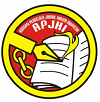STUDI KASUS PENCANTUMAN LABEL TIDAK HALAL PADA OBAT DIHUBUNGKAN DENGAN UNDANG-UNDANG NOMOR 33 TAHUN 2014 TENTANG JAMINAN PRODUK HALAL
Abstract
Indonesia is a country with the largest Muslim population in the world, which is about 87% of Indonesia's population is Muslim. The Indonesian state must guarantee its population to consume food, drinks including halal medicine as a command from Allah SWT. Law No. 33 of 2014 concerning Guaranteed Halal Products has not been fully implemented by the Government due to the limitations of Human Resources and facilities in carrying out certification of halal products carried out by the Halal Product Guarantee Agency.
The author wants to review the inclusion of non-halal labels on medicines circulating in Cianjur Regency as one of the mandates in the Law. The method used in this study is sociological jurists. The author conducted observations and interviews at pharmacies in Cianjur Regency as well as Pharmacy Installations in the Health Office that distributed medicines to the Central Health Care. In addition, the author also conducted an interview with the drug manufacturer in Sukabumi by conducting an interview with one of the managers of medicines manufacturers as business actors.
The results of the study, it turns out that all medicines observed in Cianjur Regency did not include non-halal labels.
 Keywords: Medicines; Muslim; Not Halal Label.
Full Text:
PDFReferences
A. Buku
Henny Nuraenny, 2016, Tindak Pidana Perdagangan Orang dalam Perspektif Hak Asasi Manusia, PT RajaGrafindo Persada, Jakarta.
Satjipto Raharjo. 2000. Ilmu Hukum, citra Aditya Bakti, Bandung.
Trini Handayani. 2012. Fungsionalisasi Hukum Pidana terhadap Perbuatan Perdagangan Organ Tubuh Manusia, Mandar Maju. Bandung.
B. Peraturan Perundang-undangan
Undang-Undang Dasar 1945.
Undang-Undang Dasar Negara Republik Indonesia Tahun 1945.
Undang-Undang Nomor 9 Tahun 1999 Tentang Perlindungan Konsumen.
Undang-Undang Republik Indonesia Nomor 12 Tahun 2012 Tentang Pangan.
Undang-Undang Nomor 33 Tahun 2014 Tentang Jaminan Produk Halal.
Keputusan Menteri Kesehatan Republik Indonesia Nomor 82 Tahun 1996 Tentang Pencantuman Tulisan Halal pada Makanan.
Keputusan Komisi Fatwa Majelis Ulama Indonesia (MUI) Nomor: 30 Tahun 2013 Tentang Obat Dan Pengobatan.
C. Jurnal, Wawancara, Internet, dll.
Norisca Aliza Putriana, Apakah Obat yang Kita Konsumsi Saat ini Sudah Halal, Majalah Farmasetika, Vol. I No. 4, 2016.
Panji Adam, Kedudukan Sertifikasi Halal dalam Sistem Hukum Nasional Sebagai Upaya Perlindungan Konsumen Dalam Hukum Islam, Amwaluna, Vol. I No. I. 2017.
Ramlan dan Nahrowi, Sertifikasi Halal sebagai Penerapan Etika Bisnis Islam dalam Upaya Perlindungan bagi Konsumen Muslim, Jurnal Ahkam, Vol. XIV, No. 1. 2014.
Sheilla Chairunnisyah, Peran Majelis Ulama Indonesia Dalam Menerbitkan Sertifikat Halal Pada Produk Makanan dan Kosmetika, Jurnal EduTech , Vol. 3, No. 2, September 2017.
https://media.neliti.com/media/publication/178128-ID-none, Sucipto, Halal Dan Haram Menurut Al-Ghazali dalam Kitab Mau’idhotul Mukminin.
Wawancara dengan Aning, asisten apoteker, karyawati Instalasi Gudang Farmasi Kabupaten Cianjur, Hari Selasa tanggal 13 Nopember 2018 jam 10.30 WIB.
DOI: https://doi.org/10.35194/jhmj.v5i2.1107
Refbacks
- There are currently no refbacks.
Jurnal Hukum Mimbar Justitia INDEXED BY :









